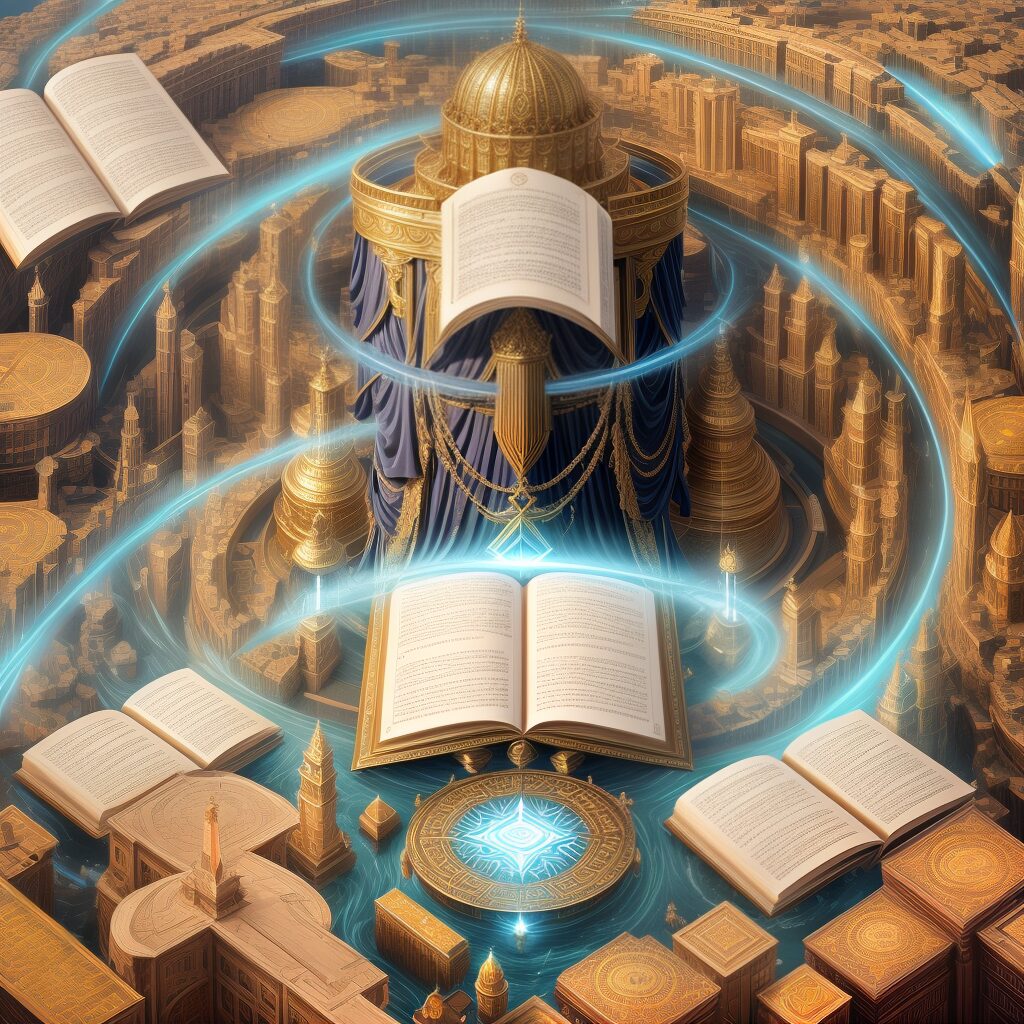
Greetings, saints of the Most High! Welcome to another installment of the Messianic Torah Observer. Today, we delve into the fascinating topic of the Noahide Laws, exploring their origins, development, and implications for both Jews and Gentiles.
Introduction to Noahide Laws
The concept of Noahide Laws originates from Rabbinic Judaism and its literature, particularly the Talmud. These laws were developed by the Talmudists between the 4th and 6th centuries CE, although hints of these precepts existed even earlier.
The Misinformation
Modern Orthodox Judaism teaches that non-Jews who keep the seven Noahide Laws will be granted a place in the world to come. However, this principle is not found in scripture but was developed during the Mishnaic and Talmudic eras. The Mishnah and the Talmud, which house Jewish oral law and commentary, played a significant role in shaping these laws.
The Jerusalem Council’s Edict
The Jerusalem Council’s edict to Gentile believers was not based on the Noahide Laws but on established Jewish halachah for resident aliens living among Jews. Resident aliens were Gentiles who lived and worked among Jews and adhered to community standards without converting to Judaism.
God Fearers
The term “God Fearers” refers to Gentiles who feared Yehovah and walked according to Torah, not necessarily those who kept the Noahide Laws. The earliest reference to the Noahide Laws is found in Tosefta Avoda Zara 8.4, part of the Mishnah, which outlines seven requirements for the children of Noah.
Expansion and Rabbinic Debates
Over time, the Noahide Laws expanded to include additional prohibitions, reflecting the complexities of life and the need for more comprehensive guidelines. Rabbinic debates on the Noahide Laws continued for centuries, focusing on their application and the distinction between Jews and Gentiles.
The Book of Jubilees
The Book of Jubilees suggests that Noah and his descendants were given the whole of Torah, challenging the idea that the Noahide Laws were separate from Torah. This perspective argues that the laws passed down to Noah were, in fact, the whole of Torah, reserved for the children of the covenant.
Conclusion
The Noahide Laws have a complex and debated history within Rabbinic Judaism. They were developed to create a distinction between Jews and Gentiles and to provide guidelines for Gentiles living among Jewish communities. Understanding these laws helps us appreciate the historical and theological context in which they were developed.
Conforming to God’s Ways in the Midst of Present Day Wokeness: Thoughts and Reflections on Torah Reading 89
Greetings from the DFW on this warm but glorious Shabbat. We commenced the 4th month of Yah's sacred calendar year earlier this week, and we're trusting in His keeping mercies as we progress throughout the month. These are my thoughts and reflections on the 89th...
Oh the Blood of Yeshua-Thoughts and Reflections on Torah Reading 88
Greetings, Beloved of the Most High, on this warm but glorious Sabbath in the DFW. I pray that you, your families, and your fellowships are well and blessed. This is the 88th parashah or reading of the 3-year reading cycle. It is contained in Leviticus/Vayiqra...
Only One Way to God-Thoughts and Reflections on Torah Reading 87
This week's reading comes under the General Torah Reading Title of "Acharey Mos," which covers chapters 16 through 28 in the Cepher of Leviticus/Vayiqra. Shabbat Shalom on this warm but otherwise beautiful Sabbath in the DFW. Our reading here today is contained within...
Dwelling in the Presence of God Through Physical and Spiritual Cleanness-Thoughts and Reflections on Torah Reading 86
Shabbat Shalom from the DFW on this, what promises to be a warm but beautiful Sabbath. What follows are my thoughts and reflections on this week's Torah Reading, which is the 86th reading of the 3-year Torah Reading cycle. Our portion is found in...
The Leprosy-Sin Connection-Thoughts and Reflections on Torah Reading 84
Shabbat Shalom. I pray that this post finds you and your families and fellowships well and blessed on this holy weekend. This is the Leprosy-Sin Connection. It is my thoughts and reflections on the 84th Torah Reading of our 3-year Torah Reading Cycle....
Torah Reading 81–The Ordination of Aaron and Sons–First Steps to Humanity’s Reconciliation
Shalom! I pray that you had a meaningful and blessed Sabbath. What follows are my thoughts and reflections on Torah Reading 81 of our 3-year Torah Reading Cycle on this mild, but peaceful Sabbath in North Texas. Parashah 81 Leviticus 8:1-36--The Ordination of Aharon...
Thoughts and Reflections on Torah Reading 80
Shalom! We pray that you had a restful and meaningful Sabbath this past week. This past Sabbath’s Torah Portion was the 81st parshah of the 3-year Torah Reading Cycle. (If you are so led to participate in reading and studying the weekly Torah Readings, we have put the...
Biblical Rosh Hashanah 2023 and a TMTO Ministry Update
Greetings Saints! May this post find you, your families, and your fellowships well and blessed during these challenging times. I wanted to update you as to what's going on with The Messianic Torah Observer of late, as well as I wanted to encourage you as we enter the...
Shabbat HaChodesh-The Realities of The Sabbath Before the Biblical New Year in 2023
Welcome to Shabbat HaChodesh—The Sabbath Before the Biblical New Year of 2023 Jewish custom holds that the Shabbat that falls on or before the 1st of Aviv is Shabbat HaChodesh--or the Sabbath of the New Moon. Like its two preceding Sabbaths of Shabbat Zachor and...
Shabbat Parah-A Foreshadow of our Perpetual Cleanness Through Yeshua Messiah
Shabbat Shalom, and welcome to Shabbat Parah. Like Shabbat Zachor last week, Shabbat Parah is neither a feast day nor a Jewish holiday. But instead, it may be viewed as somewhat of a themed Sabbath, if you will. And the theme of this Sabbath is brought forth through...
